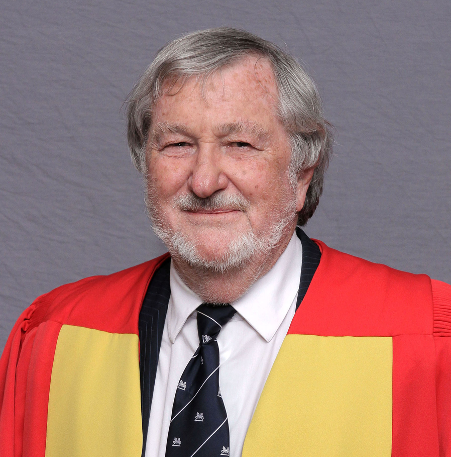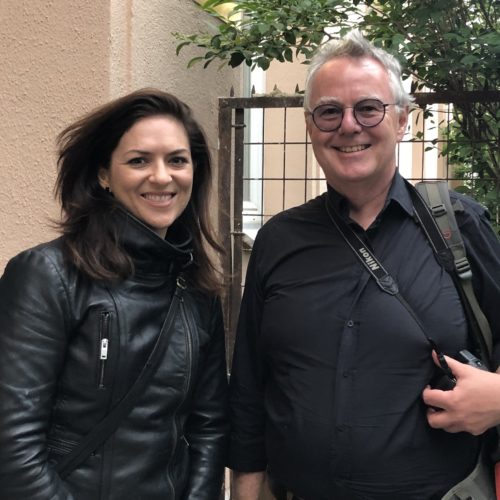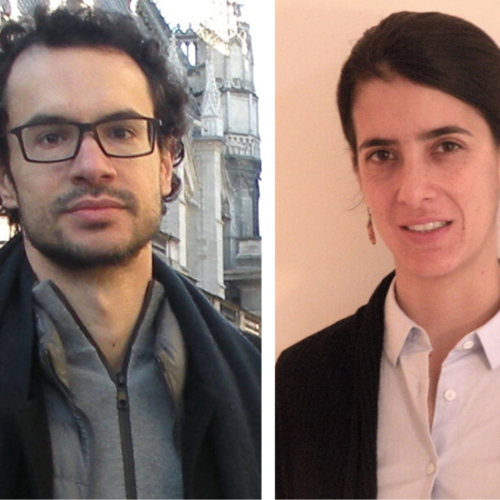Polanyi all over the World
History, Once More, in the Gear of Social Change
In this fourth part of our series 'Polanyi all over the world', David Bond and John Hultgren took some time to review 'The Great Transformation at 75', probably the first major Polanyi conference held in the US in October 2019. In their essay, Bond and Hultgren elaborate on the three main issues that came up again and again during the conference: fascism, democracy and the climate - and thus draw a bigger picture of the multiple crises happening in the US today.
30th of June, 2020
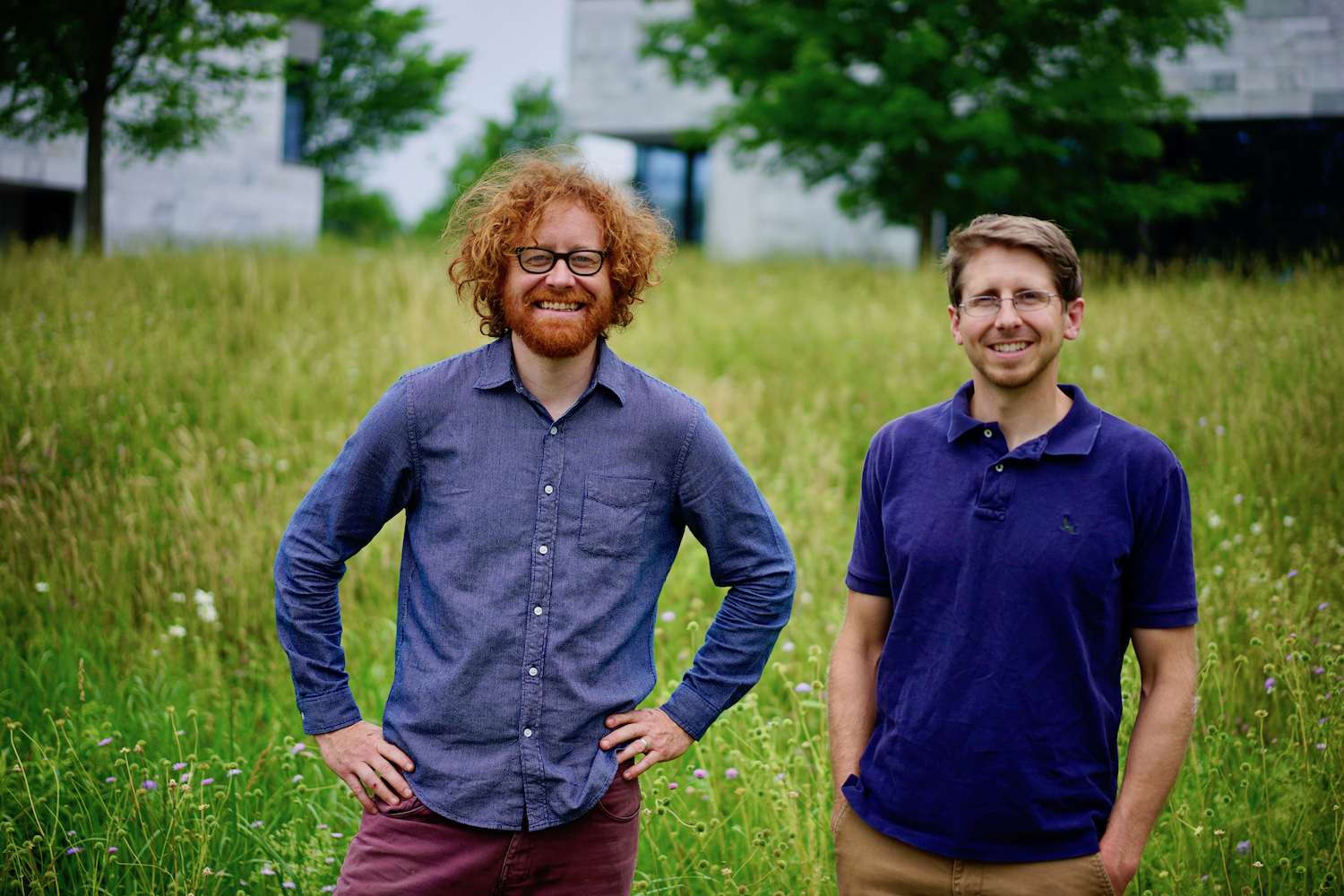
David Bond and John Hultgren
In October 2019, Bennington College in Vermont, USA, organized a conference entitled “The Great Transformation at 75” to celebrate the 75th anniversary of the publication of Karl Polanyi’s magnum opus. It was the first major Karl Polanyi conference in the United States to bring together scholars from all around the world, all of whom gathered in this small town where Polanyi found intellectual sanctuary while writing The Great Transformation.
Introduction
In 1940, as recession, racism, and totalitarian rule metastasized into worldwide terror, Bennington College announced it would devote its annual lecture fund to supporting endangered scholars fleeing the rise of fascist Europe. Through the serendipitous intervention of Peter Drucker, Karl Polanyi soon arrived on campus as an honorary fellow of the college. It was here, amid the rolling hills, meandering roads, harsh winters, and warm conviviality of rural Vermont, that Polanyi found the time to pull together scattered lines of inquiry into his prescient masterpiece The Great Transformation.
To mark the occasion of the 75th anniversary of its publication, this past October Bennington College brought together scholars and journalists from around the world to reflect on how Polanyi’s magnum opus might help us to understand the worsening condition of the contemporary. The last few years have witnessed the advance of fiercely anti-democratic forces, economies shedding any figment of generalized prosperity, eruptions of parochial hatred and insurgent racisms, the forced displacement of millions, and deepening ecological instability as the uneven impacts of climate change intensify. For three days, we gathered in seminar rooms, dining halls, and walks across the campus Polanyi called home to reflect upon the discordant timeliness of The Great Transformation today. With generosity of thought, spirited debates, and a growing sense that that present is being stretched past its breaking point, we discussed how the insights of The Great Transformation might sharpen our engagements with our fractured world, both to better grasp the cascading forces that enliven human inequity today and to chart ways past them.
Surely, we are living in an age of upheaval once more. Yet our conversation turned to Polanyi’s work less as a blueprint for explaining our present turmoil than as a potent set of concepts that help clarify the specificity of our contemporary crisis. The Great Transformation, as Robert Kuttner reminded us, is not scripture. And it was in the gaps between Polanyi’s terminal diagnosis of his time and our own inhospitable condition that some of our richest conversations took shape, whether around the necessity of incorporating capitalism, as Nancy Fraser insisted, or the necessity of foregrounding ecological crisis, as James Scott retorted. Polanyi always believed society would eventually act to save itself, Michael Burawoy said at one point; today, such survival cannot be presumed. Over the course of the conference, three themes emerged that now anchor this essay: 1) the origins and geography of resurging fascism; 2) the tactics and reach of reinvigorated democratic practice; and 3) the potential form and purpose of eco-socialist responses to the climate crisis.
Fascism
The Great Transformation insists that fascism is a global phenomenon, forged in the fires of international finance and geopolitics. But it was the inability of democratic institutions to join with popular pressures against marketization that formed the soil within which each instance of fascism took root. Against a backdrop of lived subtractions and foreclosed horizons, authoritarian rule once more surges to the helm. While Bolsonaro, Erdogan, Orban, Duterte, El-Sisi, and Trump are frequently explained by provincial problems and national resignation, is there an underlying thread that ties these instances together? What wider webs of misery now snag democratic vitality and entice brutality from above? While some participants turned to the disruptive terrain of globalism and the preemptive tyranny of financial institutions as the key update to Polanyi’s theory of fascism, others brought attention to how militarized violence cleaves populations from social legibility, how progressive identarian critique has hollowed out the terrain of human values, and how climate change shifts our primary register of induced precarity from financial networks to ecological systems.
While widening the focus beyond the nation, Polanyi also insisted we not give too much credence to the fascist militants who first seized power. The Great Transformation carries that startling insight of the 1930s: fascism was not a revolutionary seizure of power but a palace coup. Wary of a socialist reckoning rising in the winds of popular dissent, German business and party leaders readily handed the keys to the statehouse over to a ragtag bunch of militants. In a calculation that still resonates, elites found the burlesque brutalities of fascism more reassuring than reinvigorated democracy. Sound familiar? Even as the corruption and savagery of the Trump Administration comes to ever more light, Trump’s fundraising continues to break records, and relatively few CEO’s have publicly criticized him, as Fred Block noted. In the US, we have to wonder if white nationalist rallies and self-appointed militias should be better understood as a dress rehearsal of what Polanyi called “the sham rebellion” of fascism rather than a broad grassroots revolt against democracy. Indeed, many commentators overlook the well-heeled coalition of evangelicals and shareholders that stand behind Trump, instead explaining our lurch into authoritarianism by way of a clown car of adolescent grievances that appears to be leading the neo-fascist parade. But who is paving the way?
Democracy
Democracy is under siege. Whether in exempting amassed money from democratic accountability, in widening the reach of executive prerogative, in criminalizing expressions of popular sovereignty, or in tactically restricting access to the ballot, the institutions and practices of democracy are battered from all sides. So much of this echoes themes in The Great Transformation, where Polanyi diagnoses an “anti-democratic virus” endemic to the industrial state. Yet across the US and Europe, capital left the factory for dead decades ago. While still coloring policy prescriptions and the conceptual iconography of class, industrialism is largely a thing of the past in so much of the US and Europe. Where, then, does the contemporary virulence of anti-democratic forces come from?
The legitimacy crisis faced by democratic states is in no small part a product of global institutions in which free-market policy prescriptions are deeply entrenched. Greta Krippner, Claus Thomasburger, and Shaina Potts reminded us that international financial institutions continue to take great pains to insulate economics from politics, and both from democratic pressures. With neoliberal reforms constitutionally enshrined in the World Trade Organization, International Monetary Fund, and myriad free trade agreements, what recourse do democratic publics have to resisting the tired triumvirate of austerity, privatization, and deregulation? While radical cosmopolitan sensibilities increasingly permeate left movements, the institutional venues for demanding socialist (or even social democratic) reforms at a global scale remain altogether absent. Robert Kuttner asked: Can democracy survive global capitalism?
The fallout from decades of neoliberalization is acutely felt at home, where shuttered storefronts line Main Street, where work is shattered into pieces (none adequate to build a life), where dreams of ownership are cast aside as rents rise, and where the toxic aftermath of industrial pasts darkens and dampens collective aspiration. Distrust in the system is at an all-time high, and anger refuses the compromised ideologies and platforms of party politics. In these conditions, forms of what Sheldon Wolin calls “fugitive democracy” remain; for example, in the activism of care workers examined by Brigitte Aulenbacher and the solidarity economy movement highlighted by Marguerite Mendell. And yet, much of this democratic ferment unfolds in places of some privilege, at scales below the state and outside the corridors of accumulation. Perhaps we need to re-center democracy around distribution, as Margaret Somers suggested, to confront the profitable basis of our disorder more directly. Or perhaps local struggles over habitation, as Fred Block described, can provide a new basis of progressive politics beyond archaic institutions unable to reign in circuits of capital. From the reallocations of goods or the possibilities of care, our discussion explored the pathways that might pull the capacities of the state into a more principled taming of the market. Whether these political stirrings prefigure new Red Vienna’s or represent the ghost dance of a dying demos, our discussions of democracy were inseparable from considerations of socialism.
Climate
For one weekend in Vermont, the necessity of a radical socialist transformation was the default political position in regards to climate change. In true Polanyian fashion, this was not a promethean socialism, where economic growth and technological progress co-exist as hallowed solutions to distributional struggles; but, rather, an eco-socialism where the plausibility of continual economic growth in the midst of ecological crisis must be questioned. At the center of our debate lay the Green New Deal, a bold policy aimed at reasserting democratic control over the economy by bending its capacities towards the production of environmental goods and creating decent jobs in the process. For Kate Aronoff, the Green New Deal is far preferable to market-based reforms like carbon taxes or cap and trade programs whose moderate tone covers over their broken logic: adapting to the crisis of fossil capitalism by drawing nature even further into the casino economy. Gareth Dale cautioned, however, that a Green New Deal, as currently conceived, continues the conceit that we can maintain infinite economic growth on an ecologically finite planet. Referencing the near universal expectation of meat and petrol as the basis of the good life, Andreas Novy asked how a Green New Deal can be implemented in a way that doesn’t reinforce what Brand and Wissen term the “imperial mode of living”?
The lessons of the original New Deal are instructive in this regard. Many Polanyi scholars look to the post-war moment — the durable legacy of the New Deal and the social programs of the Labor Party in England – as the best example of what taming the market consists of in policy (despite Polanyi’s own disappointment about what unfolded in the US and UK after World War II). In light of our present ecological crisis, it is worth reconsidering if the broad post-war prosperity experienced in the US and western Europe was the result of democracy reining in capitalism, or of the engine of capitalism shifting from exploited (domestic) labor to extracted (foreign) nature. While labor successfully negotiated a pathway into middle class lifestyles for workers, and national institutions held back the most spectacular excesses of capital, the economies became newly attentive to, and dependent upon, a massive influx of coerced resources from abroad. The compromise of the industrial welfare state was an agreement, in no small part, bankrolled by Nature from elsewhere.
Mindful of this history, there existed widespread agreement that the Green New Deal must be internationalist in scope, tackle the problem of unequal ecological exchange, and figure out ways to confront an international institutional infrastructure in which markets remain sacrosanct.
A New Age of Upheaval
Kari Polanyi-Levitt closed the conference by walking us through the personal and historical disruptions that converged in the writing of The Great Transformation, and how prescient Polanyi’s emphasis on upheaval has proven to be. And even as we took stock of this new age of upheaval we had no idea of what lay ahead: a global pandemic that, in a matter of weeks, infected every inhabitable corner of the globe. COVID-19 appears a species level event that has catapulted the vulnerabilities and values of humanity itself to the forefront of policy considerations worldwide, though the lesson so far seems to be dismally familiar: distribute suffering downward rather than face-up to the great transformation needed to lift us all up, together.
The world’s poor will surely bear the brunt of this pandemic in the long run, but in the short-term COVID-19 has pricked the swagger of superpowers. The United States has found its sizable fiscal and militarized grasp on the world wholly inadequate to the task of taming this virus. Although it has now shelled out trillions of dollars to stabilize corporate bottom lines, by most human measures the US is a failed state. In this maelstrom – with the economic free-fall and pandemic purgatory that falls hardest on the poor and racial minorities – yet another overt act of racial violence has galvanized a widespread uprising. These past few weeks have witnessed protests that both seize upon and exceed the dilemmas of the pandemic, protests that provide an outlet for both longstanding racial injustice and newfound despair. On the one side, a newly energized movement for racial justice demands the defunding and/or abolition of police, the empowerment of local communities, and, above all, the basic right to breathe – a right threatened by the indiscriminate use of violence, environmental injustice, and inequitable access to healthcare. On the other side lies the demographic and ideological remnants of American conservatism, where the edifice of market fundamentalism is so strong that, even in the face of a pandemic, begging for the freedom to work and the right not to wear masks makes more sense than calling upon the state to provide ample monetary assistance and adequate healthcare. The resonance of this neoliberal reaction is narrow enough, though, that the Right has fallen back onto the only iron-clad ideological tenet of Trumpism: white supremacy.
Worldwide, dissent and despair now gather again on the knife’s edge between the ease of authoritarian certainty and the work of socialist transformation. It may be premature to declare that twentieth century civilization has collapsed, but there is little doubt that history, once more, is in the gear of social change.
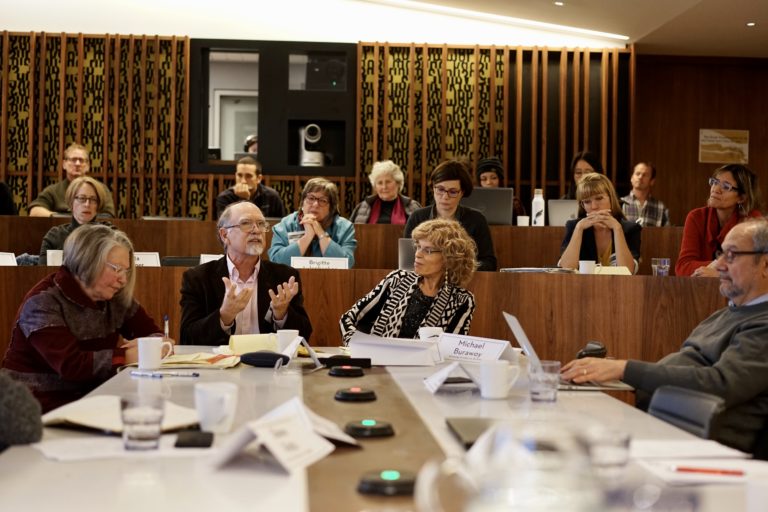
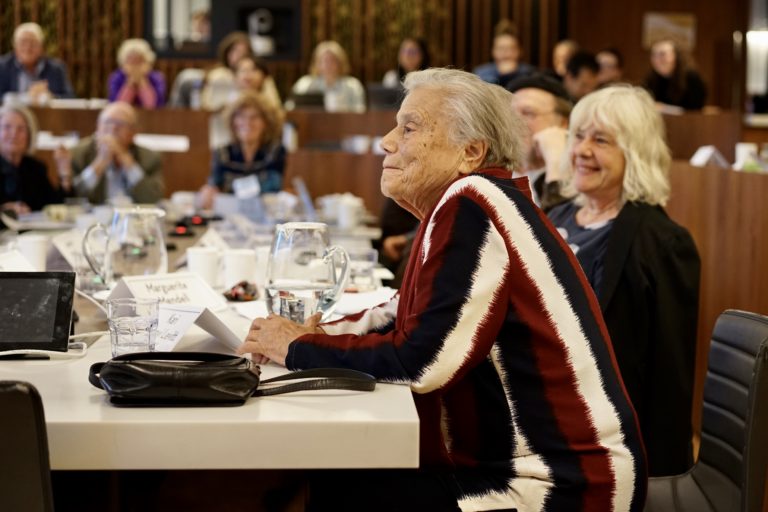
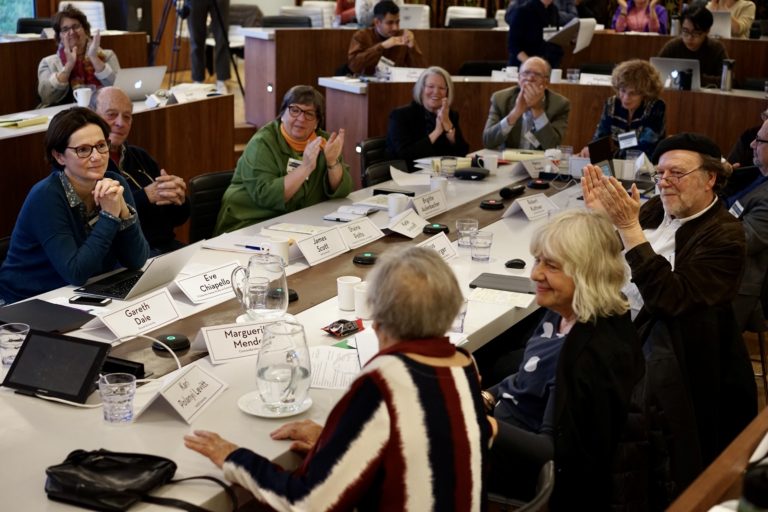
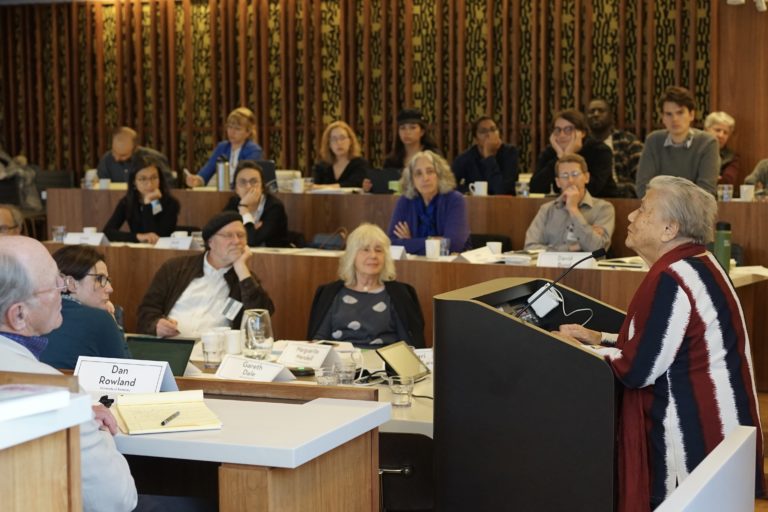
David Bond
Associate Director of CAPA
(Center for the Advancement of Public Action,
Bennington College
Vermont, USA
John Hultgren
Faculty of Society, Culture & Thought and Faculty of Environmental Studies, Bennington College
Vermont, USA
More ‘Polanyi all over the World’:

